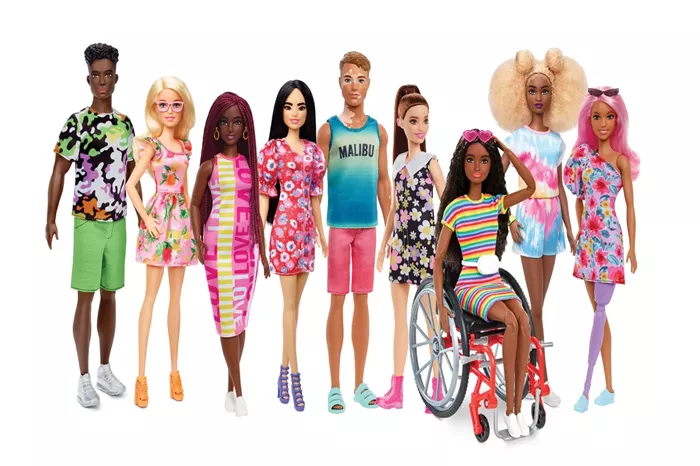Earlier this week, Mattel, the iconic toy manufacturer founded in 1945, introduced two groundbreaking additions to its “Fashionistas” line: a Barbie doll designed for the blind and a Barbie doll representing Down syndrome. These new dolls are part of Mattel’s ongoing effort to challenge stereotypes and connect with children living with disabilities.
Krista Berger, Senior Vice President of Barbie and Global Head of Dolls, emphasized that these new dolls are designed to transcend traditional toy boundaries. “We recognize that Barbie is much more than just a doll; she represents self-expression and can create a sense of belonging,” Berger stated. “We proudly introduce a new blind Barbie doll and a Barbie with Down syndrome to our Barbie Fashionistas line, reinforcing our commitment to creating products that represent global belonging and inclusivity in the doll aisle.”
While Mattel’s initiative reflects a modern approach to inclusivity, it raises a broader question about the impact of such representation. In the United States, over 90% of preborn babies diagnosed with Down syndrome are aborted. The situation is even more severe in other countries, where abortion rates have effectively eradicated the condition.
Down syndrome, or Trisomy 21, occurs when a baby has an extra chromosome. Despite its rarity—affecting approximately one in 775 births—the condition is more common than one might expect, and many families are touched by it. Actor Chris Burke, who played Charles ‘Corky’ Thatcher on the television series Life Goes On, reflects on his own experience with Down syndrome, saying, “Having Down syndrome is like being born normal. I am just like you, and you are just like me. We are all born in different ways, that is the way I can describe it. I have a normal life.”
The question arises: if having Down syndrome is just another variation of normal life, why is it so often deemed a reason for abortion? Factors such as ignorance, fear, and a lack of understanding about the sanctity of human life contribute to this tragic outcome.
Mattel has previously addressed important social issues through its dolls. The “Helen Keller” Barbie from the “Inspired Women Series” honors the renowned author and activist by incorporating braille, while a Susan B. Anthony doll celebrates the suffragette’s contributions and her staunch anti-abortion stance.
Since its debut in 1959, the original Barbie doll, created by Mattel founder Ruth Handler, has sparked both admiration and controversy. While some criticized Barbie for promoting unrealistic standards of beauty, Handler remained steadfast in her vision. “My whole philosophy of Barbie was that through the doll, the little girl could be anything she wanted to be,” Handler once said. “Barbie always represented the fact that a woman has choices.”
As Mattel continues to evolve, Handler’s legacy endures in these new dolls, which aim to foster imagination, emotional expression, and social skills in children. These dolls not only represent diverse abilities but also underscore the importance of recognizing the inherent worth and potential of every child, regardless of their physical or developmental condition.
The impact of these inclusive dolls remains to be seen. However, their introduction offers hope that they may inspire a broader societal shift towards acknowledging and valuing all individuals, including those with Down syndrome. By promoting awareness and acceptance through play, Mattel’s latest creations might contribute to a more compassionate and understanding world.
Related topics:
5 PLACES TO BUY VINTAGE BARBIE DOLLS
TOP 10 MOST VALUABLE BARBIE DOLLS
TOP 5 PLACES TO BUY AUDREY SUE CRUZ BARBIE DOLL

